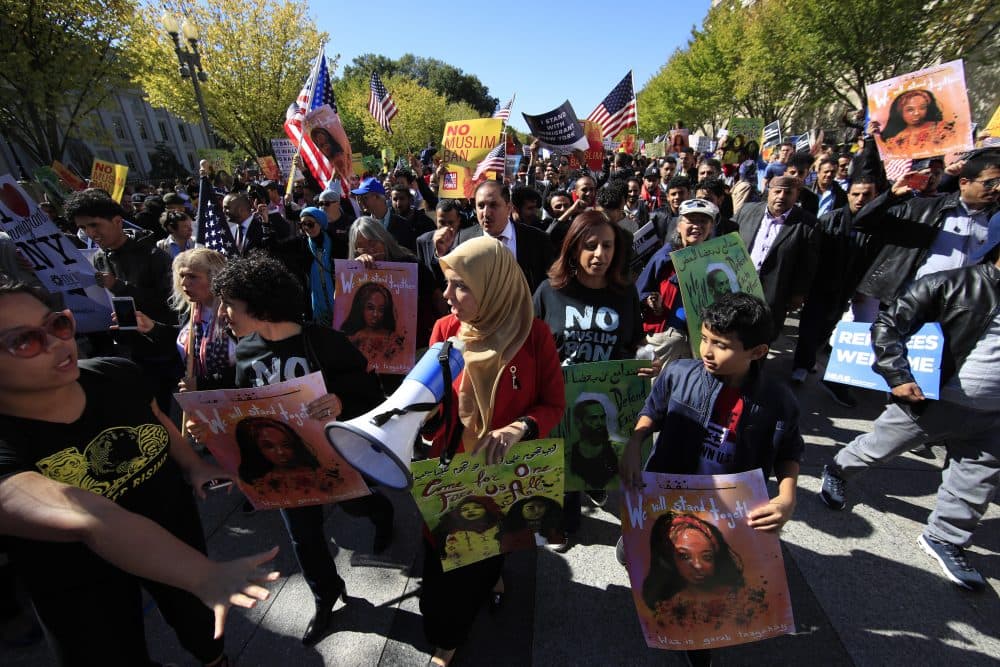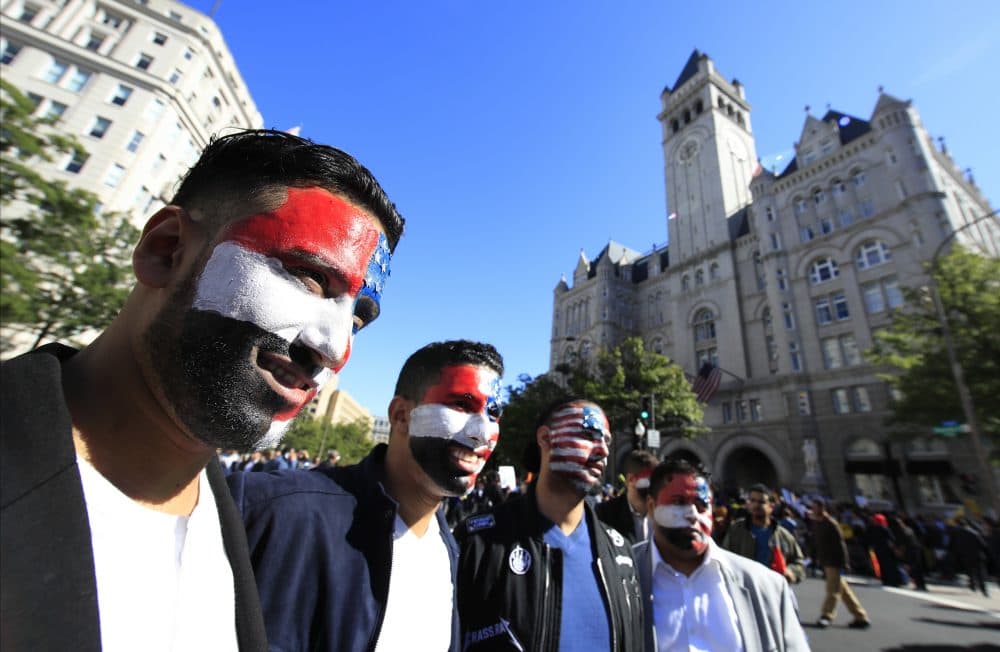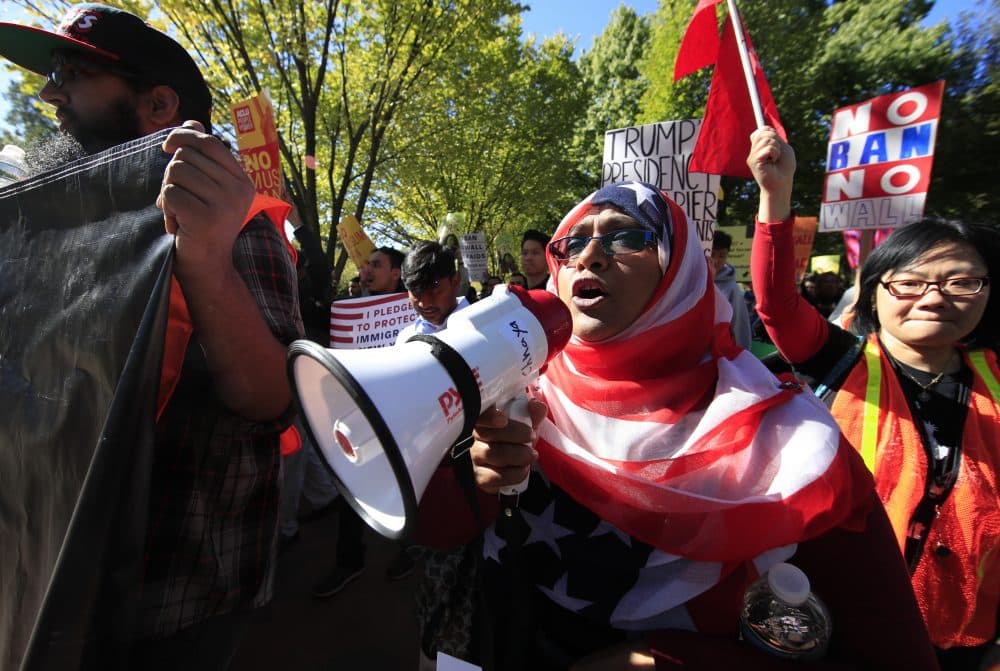Advertisement
commentary
Trump's Immigration Follies And His Floundering Travel Ban

Tuesday’s court order blocking the Trump administration’s expansive travel ban landed a much-needed counter-punch, one that should awaken the country to the economic and geopolitical opportunities that Trump’s immigration policies thwart.
U.S. District Judge Derrick Watson’s ruling in favor of Hawaii’s lawsuit underscored the Trump administration’s failure to prove “150 million nationals from six specified countries … would be detrimental to the interests of the United States.” The ban and its rejection are now becoming the familiar yo-yo of American political and policy failure as families’ lives hang in the balance. While the Department of Justice vowed to challenge Watson’s ruling, the Trump administration’s expenditure of resources against foreign nationals and refugees exhibits a dangerous lack of openness — and missed economic upside.
Trump underscored as much during his first address to the United Nations General Assembly in September. His thesis: a dramatic reform of the U.N. system, citing regions in conflict that are “going to hell” under the group’s watch. Though the United States is the world’s most significant contributor to refugee issues globally, the displaced merited little mention. His speech passed the buck to fellow leaders and their countries to manage the problem themselves. Trump pandered to his base, outlining the risks of “uncontrolled” migration as costs “borne overwhelmingly by low-income citizens … often ignored by both media and government.”

His diatribe, and the policy that ensued, missed the point.
The Trump administration followed this speech with the announcement of its 45,000 quota for refugees, far below the Obama administration’s 110,000 quota and the nation’s lowest in nearly 40 years.
The number could fall far below 45’s 45, too. The administration initially alluded to 70,000, and its surviving nationalist wing quietly proposed 25,000. With a record 65 million refugees globally and counting, we must face the practical truth that the crisis demands unified global action beyond “America first” principles. Trump’s actions only make these fissures more severe.
Most worryingly, Trump and his administration rejected the findings of an administration-mandated memorandum in September that outlined the economic benefit of refugee integration. A first version of the now-retracted report from the Department of Health and Human Services made clear refugees brought a net economic benefit of more than $63 billion in government revenue over 10 years. The figure is a far cry from the drain on entitlements and services Trump used as a campaign touchstone.
The draft report from HHS noted that to date, “no study of the national fiscal impact of refugees has been undertaken,” and as such, we lack a benchmark against which to measure this financial benefit. But still, the version of the report that was ultimately published contained no mention of the economic upside, leaving no official evidence of the benefits refugees deliver.

After acting laudably against the alleged war crimes of Bashar al-Assad's regime this spring, Trump has done little to counter Assad and a Syrian civil war that drove millions to Europe in a historic diaspora. The spate of severe weather events and their attendant humanitarian crises have painted an all-but-certain explosion of climate refugees, a number the U.N. Refugee Agency expects to balloon to 200 million by the middle of the century.
With travel bans and invented refugee “threats” similar to those from 2016, the Trump team could claim that national security depends upon historic and extraordinary limits to migration. Yet former security advisers from prior administrations, have argued as recently as March that refugee resettlement strengthens the nation’s relationships with other countries and makes allies more likely to act in our interest. As tensions rise, the nation needs all the friends it can get.
Attention and rhetoric alone cannot solve this issue. The United States Association for the United Nations Refugee Agency has taken pains to elevate the humanity of the refugee crisis specifically through laboratories that connect public narratives with refugees’ economic and social potential, work I helped lead as the Syrian crisis crested in 2015. Time and again, it was clear these hardworking asylum-seekers and displaced people deserved better and worked harder than the public would imagine.
Given the Trump administration’s historically reduced quotas and more dangerous lacks of disclosure, a crisis nearly invisible to the American public now eludes economic and security reality. The world’s diplomats and media, if they hadn’t yet been exposed to Trump's groundless rhetoric, now see his eagerness to call names, poke rivals, twist truths and defer economic responsibility on a global stage.
When we obscure information in crises of this depth, we ultimately perpetuate as much damage to refugees as the leaders of the nations that threaten them. Fortunately, the Hawaii court order offers a moment to recognize the course correction necessary to recapture this value and values.
A grandson of German immigrants, Trump fails to grasp the benefits of a multilateral world. As a result, our nation begins to appear too similar to those the displaced seek to escape.
